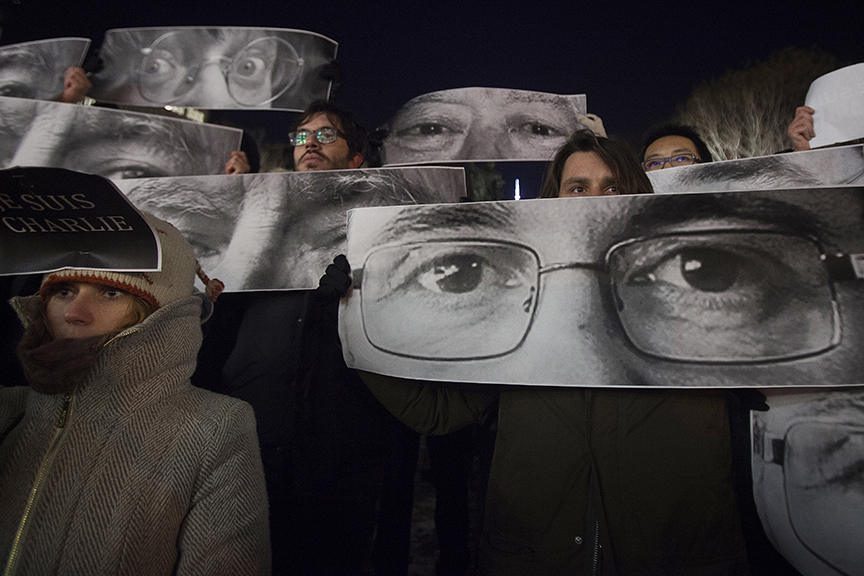Charlie Hebdo harsher with Christianity than Islam
The magazine has, at times, loudly defended the Muslim faith
Share
A few weeks before two gunmen broke into its offices and murdered the near entirety of its staff, the profane geniuses of Charlie Hebdo were busy sullying an established Abrahamic religion with a bloody history of punishing non-believers. Drawn by the cartoonist Riss—his real name is Laurent Sourisseau, and he was injured in the Jan. 7 attack—the cover depicts a smiling baby Jesus exploding out of the Virgin Mary’s lady parts. “[D]id you know that the Baby Jesus was a child of sin, scourge of dragons, sandpit faith-healer, child-killer, blinder of men, hyperactive child-king, tormentor of his teachers, and apprentice prophet?” read the inside copy.
This, my friends, is how you demean a religion: put its central figure between the legs of his sainted mother, herself a gap-toothed dolt, and say he is a product of carnal, not celestial, coupling. Make him simply, wretchedly human, in other words—thereby calling into doubt the intelligence of anyone who worships this being.
Juxtapose this with the Charlie Hebdo treatment of the prophet Muhammad over the years. As with the magazine’s critiques of Christianity, there are many examples from which to choose, so it’s best to go with the most contentious, printed in 2006.
Here we see a distraught Muhammad, head in his hands, weeping. “It’s hard being loved by idiots,” he says. The headline: “Muhammad overwhelmed by extremists.” Inside, the editors published the infamous Muhammad cartoons, many of which spoke to the same point: Islam has been hijacked by extremists who are as thin-skinned as they are misogynist and violent. In 2007, the French Council for the Muslim Faith sued Charlie Hebdo and lost, arguably in part because the magazine was critiquing not the faith but the more extremist of its followers.
My point here isn’t only that Charlie Hebdo is an equal opportunity offender of religions, a fact repeatedly borne out in the magazine’s archives. It’s also this: over the years, Charlie Hebdo has been far harsher with Christianity than it has with Islam. Catholic organizations have sued the magazine 13 times, and only once by Muslim groups. That the magazine was both firebombed (in 2011) and its staff attacked and killed (2015) by apparent adherents of Islam only speaks to Charlie Hebdo’s central point: it’s not the religion that’s the problem—though there’s that too—but its most extreme adherents. “French Muslims are sick of Islamism,” read the first cover sell in one issue.
French society might well be anti-Islam. Muslims, who make up 12 per cent of the country’s population, account for about 60 per cent of its prison population. Many of Paris’s infamous banlieues are petri dishes of relative poverty and exclusion. French politicians, eager to curry to the public’s favour, have been far too quick in appealing to its baser fears; Nicolas Sarkozy’s outright burqa ban is but one example of this.
But Charlie Hebdo is hardly a reflection of this hate. In fact, when it wasn’t pillorying him for being an image-obsessed, pro-American patsy, Charlie Hebdo was at its best when it pointed out in brilliant and profane Technicolor how Sarkozy was guilty of scapegoating Muslims and the Roma for the sake of an election. Here is one example.
There’s a sad irony for you: far from being anti-Islam, Charlie Hebdo was perhaps the loudest defender of those who practice it.
